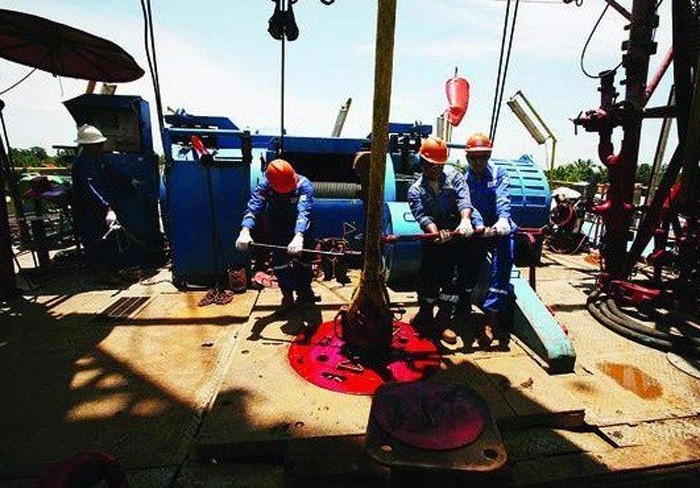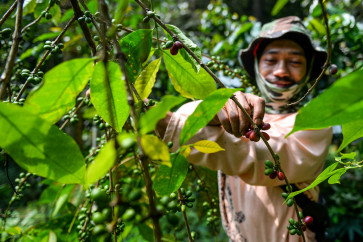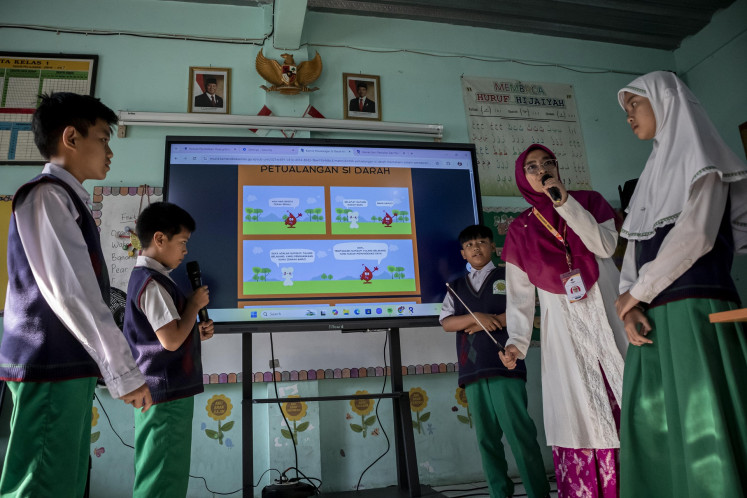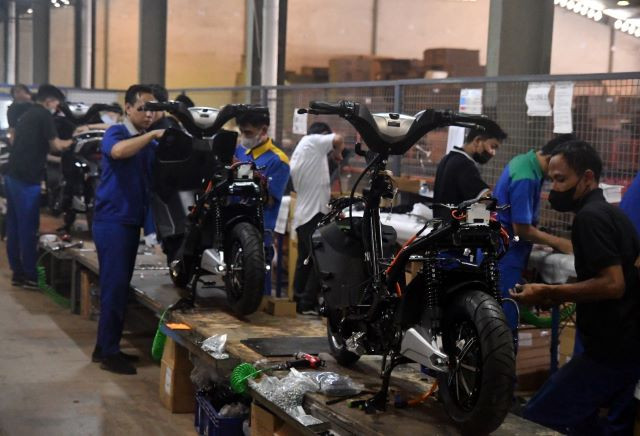EMCL keeps hopes high over Banyu Urip output
Change text size
Gift Premium Articles
to Anyone
 Workers tighten a drilling machine at an oil and gas block in Indonesia. (Kompas.com/File)
Workers tighten a drilling machine at an oil and gas block in Indonesia. (Kompas.com/File)
O
ne of the country’s biggest oil producing fields, Banyu Urip in the ExxonMobil-operated Cepu block in East Java, may start increasing production next year.
The local unit of the US oil and gas giant has proposed a production increase to 200,000 barrels of oil per day (bopd) from the current 185,000 bpod in its 2017 work plan and budget draft, says ExxonMobil Indonesia vice president for public and government affairs Erwin Maryoto.
Erwin claimed the draft submitted by ExxonMobil Indonesia’s subsidiary, ExxonMobil Cepu Limited (EMCL), had largely been accepted by the Upstream Oil and Gas Regulatory Special Task Force (SKKMigas) as long as it passed a reevaluation of its environmental impact analysis by the Environment and Forestry Ministry.
Even so, the company was confident that it would pass with flying colors since its own evaluation concluded that there was no need to construct new facilities to reach the target production.
“We don’t see this as something critical since there should not be any environmental impact because there will be no construction of new facilities,” Erwin said at the Banyu Urip field site on Thursday.
He added that it had obtained approval from its partners in the block, including Pertamina EP Cepu (PEPC), a subsidiary of state-owned oil and gas firm Pertamina.
This is not the first time EMCL has requested to push up its production rate to 200,000 bopd.
Although SKKMigas allowed the company to start producing 185,000 bopd from 165,000 barrels originally listed in its 2016 work plan and budget, the oil and gas supervision body brushed off further hikes despite the country’s declining production rates. This rejection was based on geological issues.
SKKMigas head Amien Sunaryadi also argued earlier that maintaining the present production rate would be more profitable for the government.
At the current pace, Banyu Urip generates around 20 percent of all national crude output, and has produced up to 120 million barrels since it was first established in 2008 with total investment of US$4 billion.
Based on the company’s estimate, it has contributed $44 billion to state coffers under the assumption of oil prices at $50 per barrel.
Even though the original plan of development indicates that 450 million out of 1 billion barrels of crude reserves are recoverable, EMCL has since estimated that recoverable oil stands closer to 700 million barrels.
This was why, Erwin explained, the company was confident enough to propose a significant addition to production.
SKKMigas could not be reached for comment on the issue.
Any increase in Banyu Urip’s production could be a boon to Indonesia, where aging wells and lack of new oil discoveries have caused shrinking domestic output of around 20 percent every year.
The slow rising crude prices have not helped much either and next year’s ready-to-sell production target has been set at 815,000 bopd from 820,000 bpod this year, despite the government’s original proposal of 780,000 bopd.
Despite EMCL’s enthusiasm to jack up production, other oil and gas companies remain wary about the seemingly rising prices.
Total E&P Indonesia recently confirmed that it had proposed to cut its total production next year.
Vice president for corporate communications Arividya Noviyanto said that, if approved, it would decrease oil and condensate production to 53,000 bopd from this year’s 64,000 bpod. The company has committed to invest $900 million in upstream oil and gas activities.
“Oil prices will remain a challenge next year. [Domestically], the Mahakam block transition will also be a challenge,” Noviyanto said, citing Pertamina’s impending takeover of the block in 2018.









